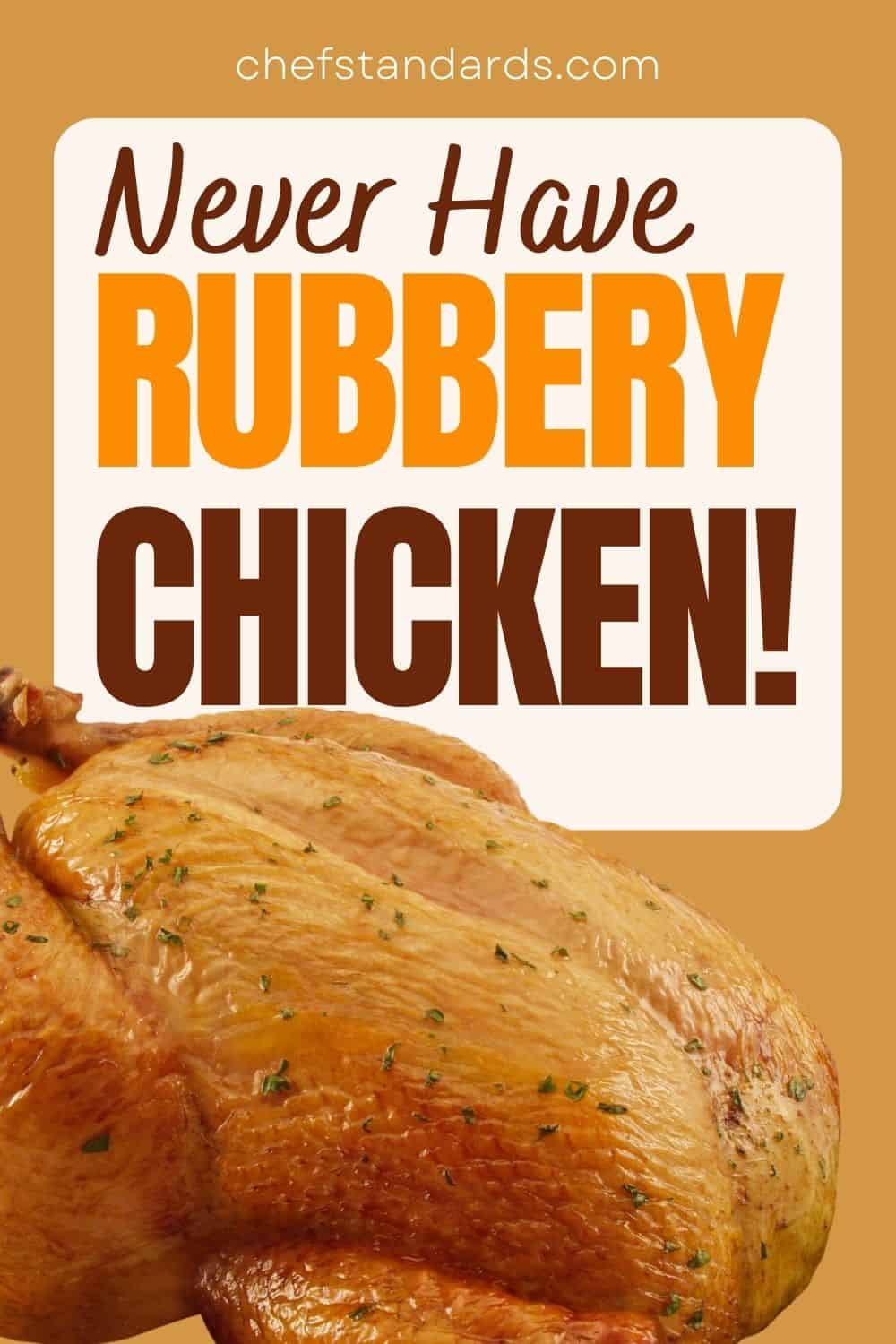You consulted with your mother, and you followed the recipe but the final result was rubbery chicken. Then you ask yourself: Why is my chicken rubbery? What am I doing wrong?
Actually, you could be doing something wrong such as overcooking or undercooking it or using the wrong cooking methods. There’s also an external factor called low-quality chicken meat and farming conditions which can result in rubbery chicken as well.
Worry not. Rubbery chicken is not the end of the world because you can always fix it. More importantly, you can learn how to prevent rubbery chicken in the future which is strongly recommended.
And guess what? You’ll learn all of that below!
4 Main Reasons Your Chicken Is Rubbery
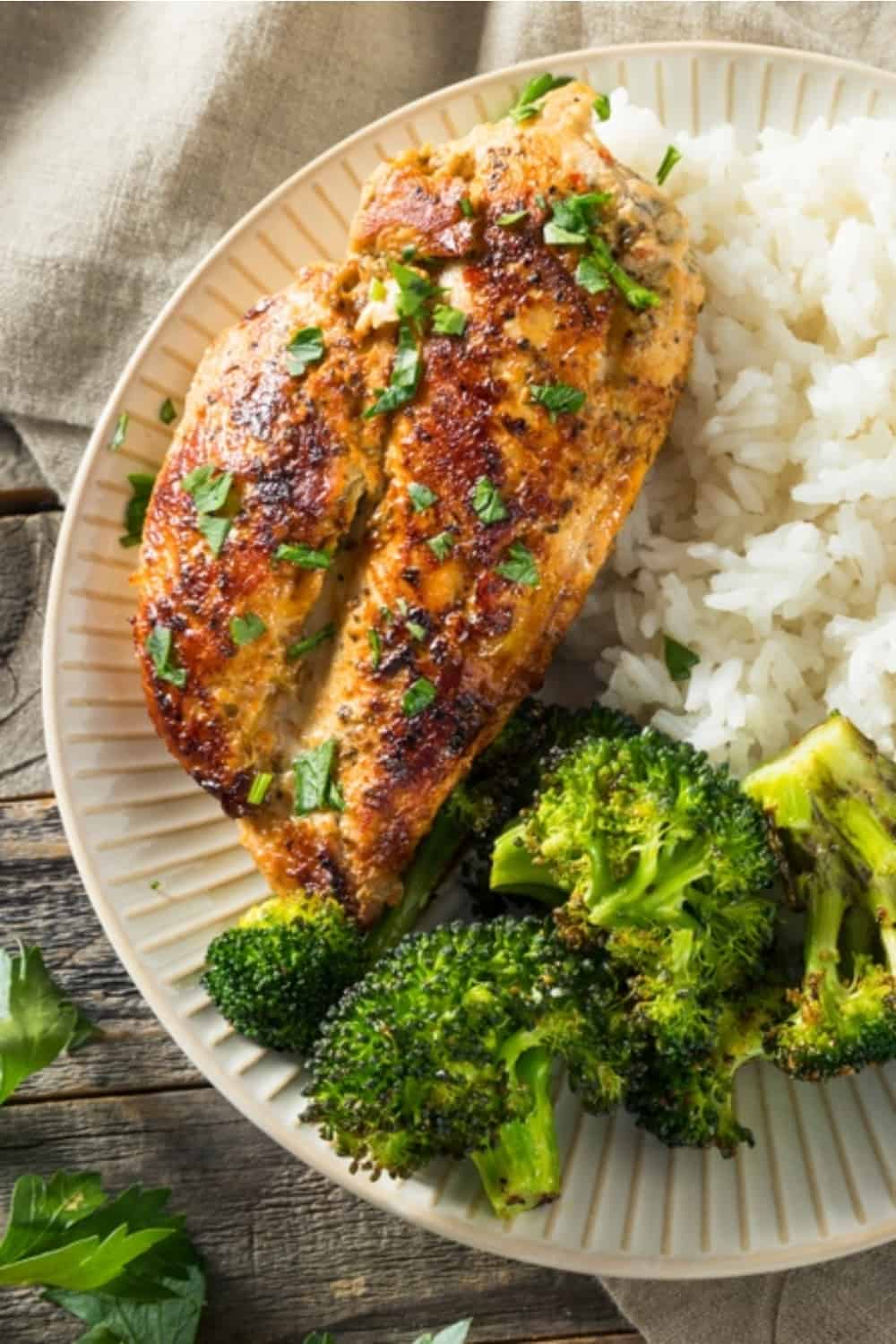
From overcooked chicken to low chicken quality, here are the main reasons why your chicken is rubbery:
1. Overcooked chicken
I don’t know about you, but I have this habit of multitasking when cooking, and almost every single time I end up with overcooked chicken.
What does this mean? If you overcook chicken, it will use its moisture and become rubbery. To avoid overcooking, you should always check the internal temperature of the chicken or stop multitasking (probably both).
2. Undercooked chicken
Then we have undercooked chicken which is an even more serious issue than just being rubbery or jiggly. Wondering why?
Because undercooked chicken is potentially unsafe to eat. So, you should definitely fix that before eating it (see below how).
3. Cooking methods
If you cook chicken with dry heat, then it’s most likely it’ll be rubbery. That’s why it’s important to cook chicken in moisture and/or marinate it before cooking.
There are also recommended cooking methods such as steaming, braising, or slow cooking (more on that below).
4. Low chicken quality and farming conditions
Organic and slowly grown chicken is considered the best quality. Contrary to it, we have white striped chicken and woody chicken breasts that, unfortunately, cannot be fixed.
As the name implies, white striped chicken has white stripes of fat along the muscle fibers that can be found on chicken thighs, chicken breasts, and other more tender pieces of chicken.
Woody chicken breasts mean that the muscle fibers of chicken breasts are knotted which makes them chewy and rubbery when cooked.
So, who are we to blame for these two phenomena?
Scientists believe that the culprit is the increased growth rate of chickens, but this is the topic for another day (read: another article).
Wait, Is Rubbery Chicken Safe To Eat?
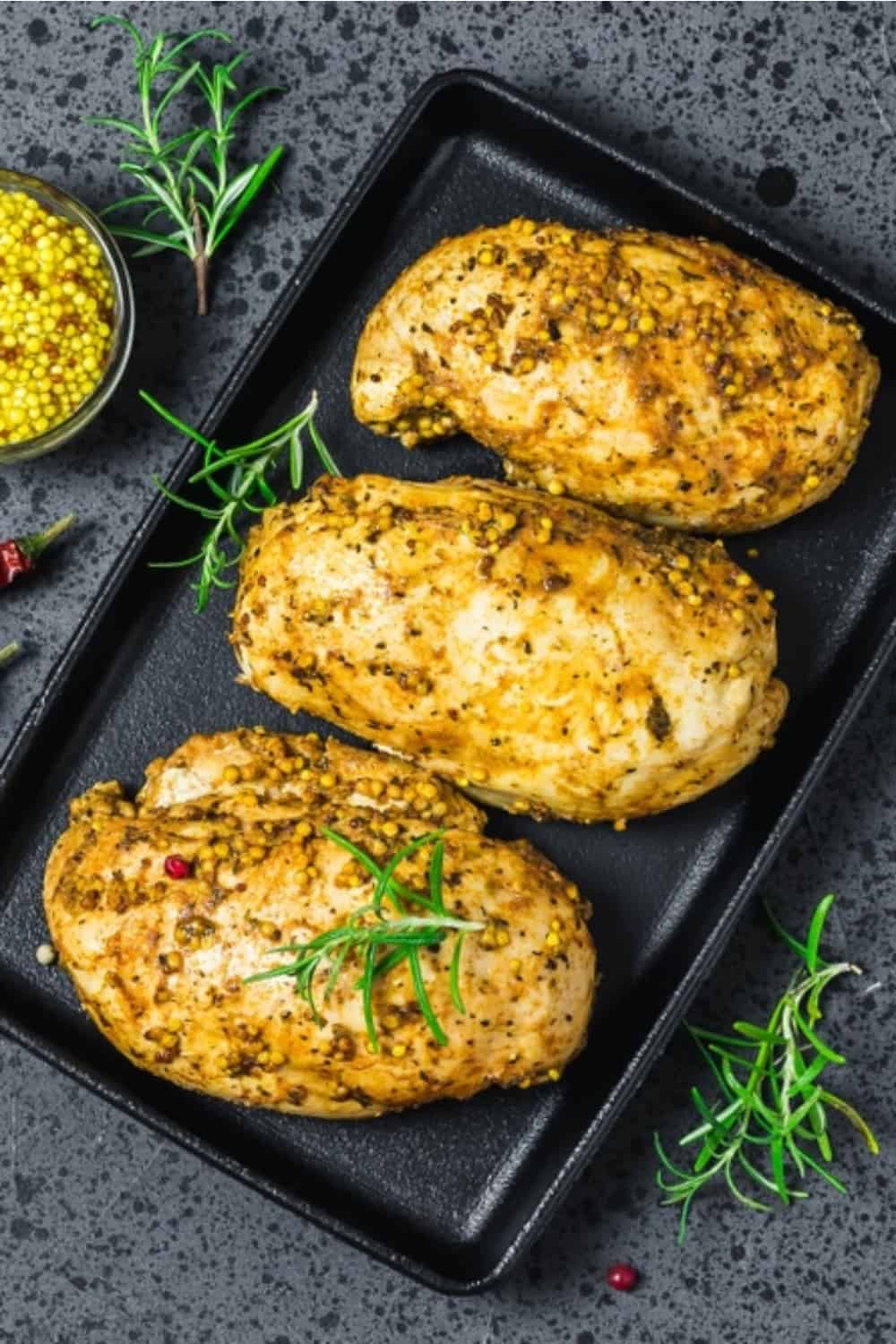
Overcooked chicken is generally safe to eat but keep in mind that it won’t be as delicious as perfectly cooked chicken.
Raw or undercooked chicken is not safe to eat because this can potentially result in health poisoning which is something you should avoid at all costs.
One of the safest ways to know when the chicken is cooked and safe to eat is by using a meat thermometer. All you need to do is insert your food thermometer into the thickest part of the chicken.
According to the USDA, “all poultry should reach a safe minimum internal temperature of 165 °F (73.9 °C) as measured with a food thermometer”.
Yes, You Can Fix Rubbery Chicken.
Generally, chicken becomes rubbery because it loses all of its moisture and fat during the cooking process (especially if you overcook it). Here are my two favorite ways of fixing the “rubbery situation”:
• Shred the chicken and add some liquid and fat to it such as olive oil mixed with water.
• Cover the chicken in a sauce according to your preference.
Additional liquid and fat will make the chicken more tender and juicy. In other words, it will fix the “rubbery situation”.
You Can Also Learn How To Prevent Rubbery Chicken
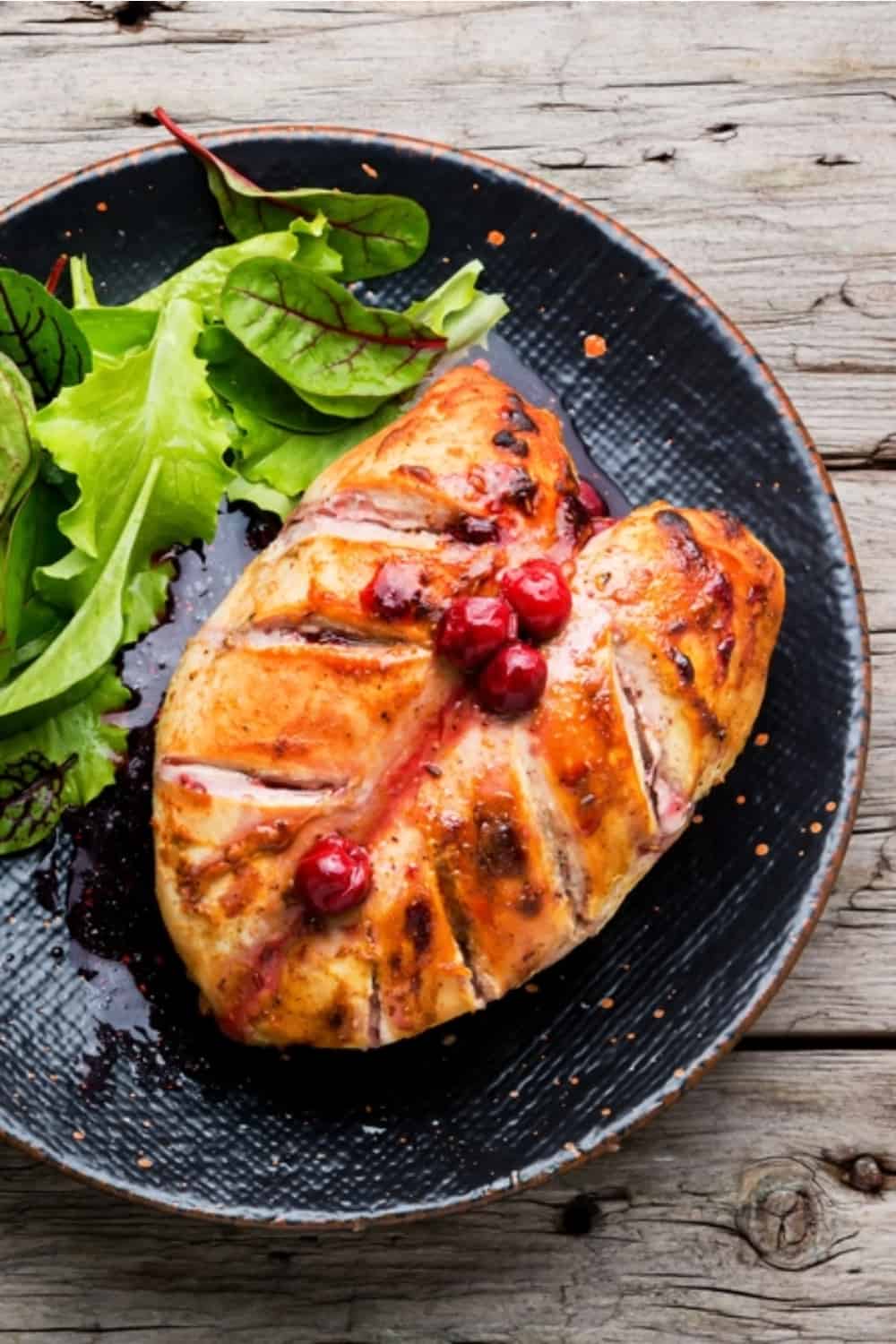
After a few failures, I’ve finally learned the best methods to keep the chicken moist and tender when baking. Here’s how to successfully avoid eating rubbery chicken:
• Bake chicken at 350°F: Baking at a lower temperature for longer decreases the risk of drying it out. Baking thin chicken breasts at this temperature will ensure that it stays moist.
• Marinate the chicken for a few hours: Marinate the chicken in a Ziploc bag for at least 2-3 hours before baking. Once it absorbs the marinade, the chicken will stay juicy after baking. Pro tip: You can also marinate the chicken overnight.
• Cook chicken with moisture: Dry heat = rubbery chicken.
• Use olive oil: Olive oil keeps chicken juicy and it also adds extra flavor.
• Choose the right cooking methods: The best cooking methods for chicken are steaming, slow cooking, stewing, boiling, simmering, braising or sous vide.
• Consider buying high-quality, organic chicken if possible.
• White stripes alert: Avoid chicken breasts that have white stripes along their muscle fibers.
• Use aluminium foil: If you cover chicken with aluminium foil while baking, it will help keep the juices inside. As a result, you get a juicy and tender texture of the chicken. Pro tip: You can use aluminium foil in an air fryer as well.
• Soak the chicken in milk: Soaking chicken in milk for at least 4 hours (or overnight) and placing it in the fridge helps the chicken preserve its juiciness and tenderness. How? Thanks to the lactic acid that breaks down muscle fibers in the meat.
• Basting: This is one of my favorite methods for preserving juiciness. The basting method means pouring the oil or butter onto the chicken a few times while it’s baking.
• Bring the chicken to room temperature before cooking: This is a great way to avoid uneven cooking.
• Cook to the right internal temperature: The minimum internal temperature for all poultry is 165 °F (73.9 °C) as measured with a food thermometer.
• Don’t skip the resting period: Allow the meat to rest for 10 to 15 minutes before cutting and eating it. This will result in a more tender texture.
Juicy Oven-Baked Chicken Breast Recipe
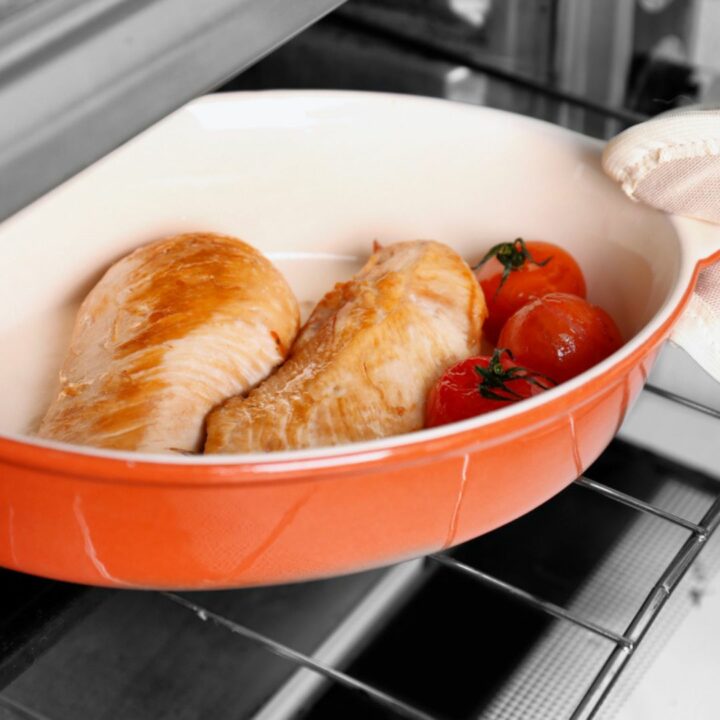
Juicy Oven-Baked Chicken Breast Recipe
If you’re looking for simple ingredients and outstanding chicken flavor, then I’m sure this will be one of your favorite recipes.
Ingredients
- 1 tsp kosher salt
- 1 tbsp extra virgin olive oil
- 1 tsp dried rosemary
- ½ tsp black pepper (ground)
- 4 chicken breasts (skinless and boneless)
- 1 tsp paprika or hot chili powder
Instructions
Step 1: Preheat the oven to 350°F (177˚C). In the meantime, rub the chicken breasts with olive oil, salt, rosemary, black pepper, and paprika or hot chili powder. You can also use the same seasoning mix to marinate the chicken breasts in a Ziploc bag and leave it in the fridge for 2-3 hours before baking.
Step 2: Place the chicken breasts on a greased baking pan, and bake it for 30 to 35 minutes. Reminder: The chicken breasts should reach an internal temperature of 165 °F (73.9 °C).
Step 3: Once baked, let the chicken breasts rest for a few minutes. This will result in a more tender texture.
Step 4: Don’t forget to share this recipe with your loved ones. Bon Appétit!
